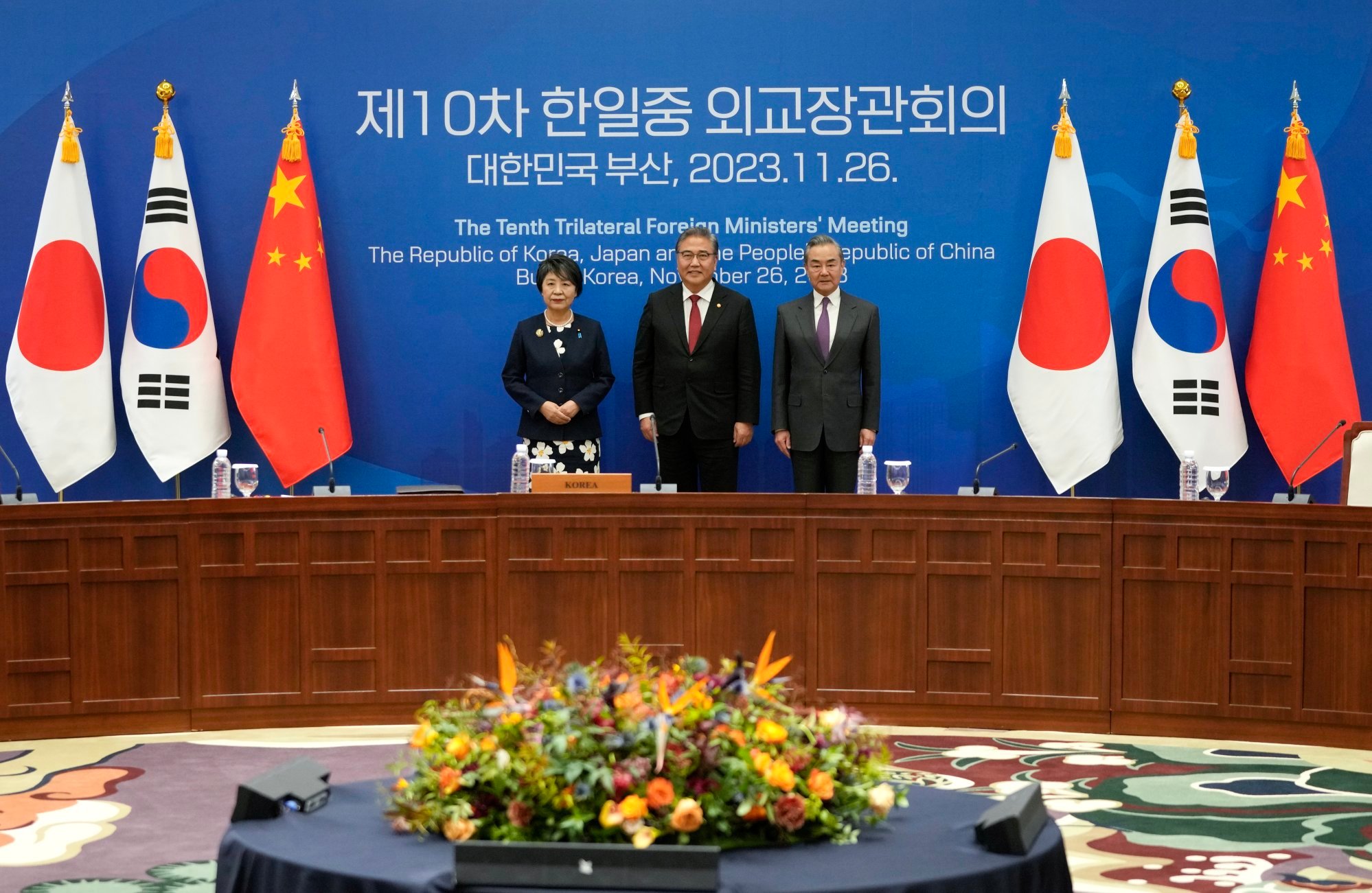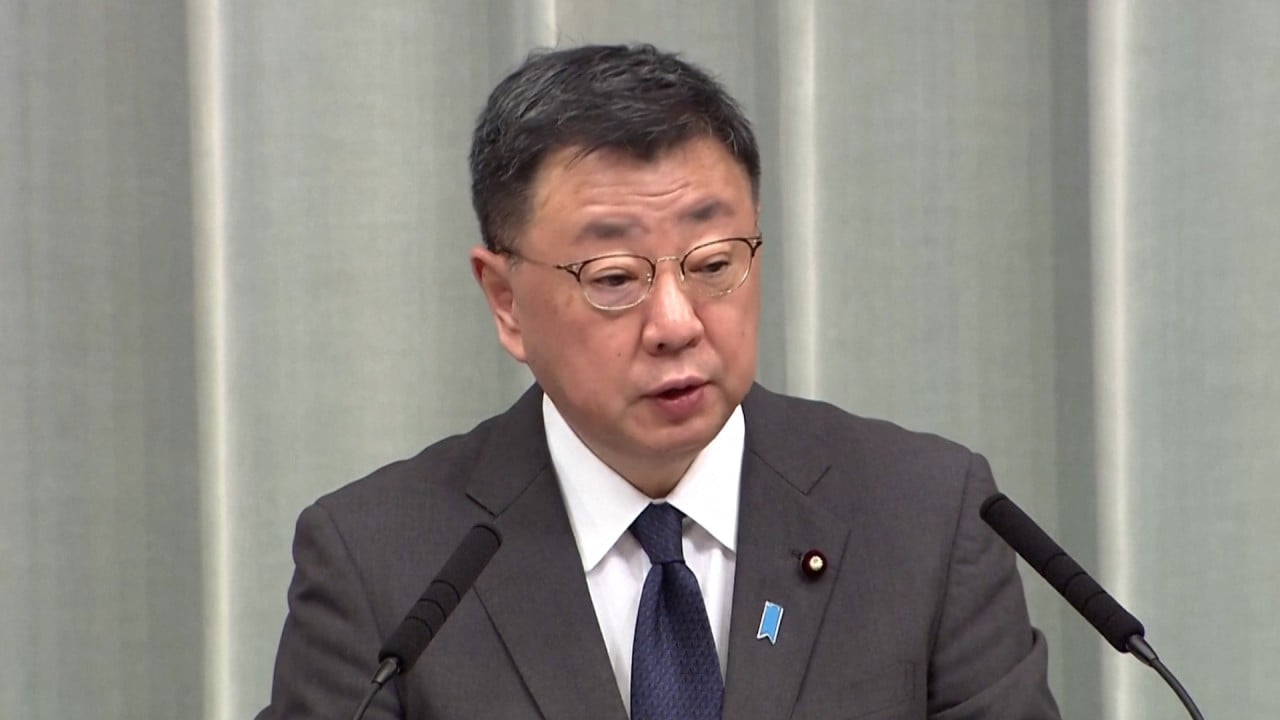
China unlikely to apply ‘economic coercion’ against Japan amid slowdown as Tokyo builds ‘safety net’
- A top Japanese business delegation has failed to get Beijing to address Tokyo’s concerns such as China’s anti-espionage law and seafood ban
- Japan has been expanding its economic capabilities in various areas in a bid to ‘diversify away from China’
Analysts say China can ill-afford to turn to “economic coercion” while national security concerns appear to have emerged as a bigger concern compared with the economy.
In a meeting with Chinese Premier Li Qiang, the Japanese delegation pressed for a return to visa-free travel as this would induce more Japanese companies to invest in China, according to JECA officials who briefed journalists after the discussion.
Most Japanese do not have ‘friendly feelings’ towards China, poll shows
Stephen Nagy, a professor of politics and international studies at Tokyo’s International Christian University, said China would not engage in economic coercion due to the worsening structural challenges within its economy.
These include slower foreign direct investments into China, deteriorating sentiment on the Chinese market, and an increasingly uncertain business outlook since the anti-espionage law was enacted last year.
If Beijing engaged in economic coercion, Nagy said this would likely lead foreign companies to “diversify away from China”.
Why Asia largely backs Japan’s defence boost despite its ‘history of aggression’
In recent years, China has increasingly used its economic leverage – including restrictions on imports, exports and tourism – to pressure countries into avoiding or reversing political or military policies opposed by Beijing.
In a bid to counter Chinese influence, Japan has over the past few years increased defence and security cooperation with Western countries particularly the United States, including strengthening mutual supply chains, moves which had drawn China’s displeasure.
The arrests have resulted in a growing sense among many Japanese companies that the business environment in China has become more “ambiguous” in terms of “what is legal and what is illegal”, Nagy said.
“Under [China’s] comprehensive national security, not only the economy but also the environment and culture are associated with security,” Kawashima said, adding that even though the delegation accomplished little, it was important that Li met with the delegation.
“In recent years, politicians at the prime ministerial level have not met with delegations from Japanese business organisations,” Kawashima noted.

Elli-Katharina Pohlkamp, a visiting fellow with the European Council on Foreign Relations, said there could be a “slight possibility” that Beijing might address some of the Japanese business concerns, “but only on a selective and conditional basis”.
“[It will] depend on the sector, the company, and the timing and if it is helpful for its economic situation and business with Japan,” said Pohlkamp, who specialises in Japanese foreign relations, security and defence policy.
China appears to have a mixed attitude towards Japan, willing to cooperate in some areas and applying pressure [on Tokyo] in others, she added.
In recent weeks, China and Japan had accused each other of maritime incursions after a confrontation between their coastguards in waters around the islands.
US looks to Japan shipyards deal to stay battle-ready amid tensions in region
Pohlkamp, who is also director of the Agora Strategy Institute, a geopolitical consulting firm specialising in political risk analysis, said that Japan will continue to diversify its economic ties with other countries and strengthen its security capabilities even as it seeks to maintain stable ties with China.
Japan announced in 2021 a strategy to bolster its economic resilience and security, including a stable supply of critical materials, patent protection, development of advanced technologies, and infrastructure security.
“If China resorts to full-fledged economic coercion, such as imposing sanctions, tariffs, or boycotts on Japan, it will have a significant impact on Japan’s economy and society.
“But with its economic security strategy, Japan is already preparing to have safety nets in critical sectors,” Pohlkamp added.


